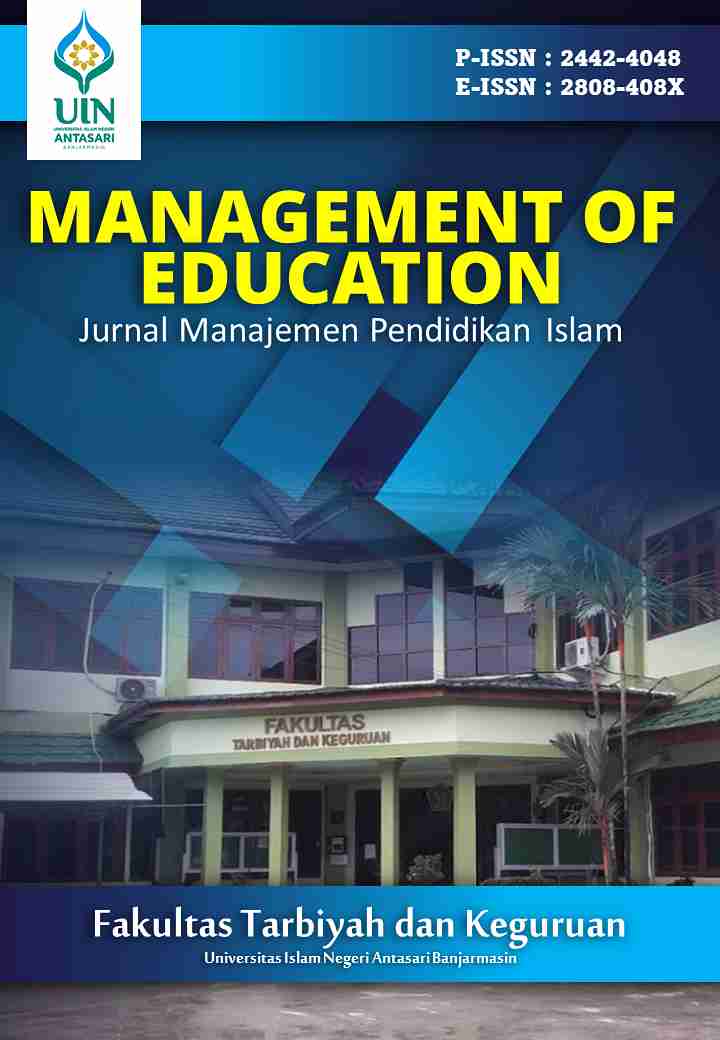IMPLEMENTASI NILAI-NILAI PANCASILA DALAM ERA “NEW NORMAL”
DOI:
https://doi.org/10.18592/moe.v7i2.5433Keywords:
Pancasila, New Normal Era, Pandemic, Covid-19Abstract
The Covid-19 pandemic that Indonesia has been facing since March 2020 requires well-planned handling to deal with this new normal or new normal. Adopt health protocols that are in accordance with World Health Organization (WHO) directives that apply globally to strengthen community resilience in the face of the Covid-19 pandemic. Through various policies that have been established by the Government of Indonesia to respond to this Covid-19 pandemic health disaster. The level of transmission and spread of Covid-19 is still increasing and there has not been a significant decrease because the implementation of policies that handle Covid-19 which refers to WHO directives are still faced with many problems so that the handling is still not optimal and effective. Therefore, it is necessary to change the approach to handling the Covid-19 pandemic which is based on the values of Pancasila as a view of the life philosophy of the nation and the Indonesian people when viewed from the perspective of national interests, which is expected to increase the useful results of the efforts to handle the Covid-19 pandemic carried out by the Government. The implementation of Pancasila values in handling the Covid-19 pandemic can create a new normal or a new normal that is free from Covid-19.References
Azra, Asyumardi. 2020. Materi Ceramah PPRA LXI, Lemhannas RI.
Anggraeni, Fina S., Erfendi. 2020. Implementasi Merdeka Belajar Di Era New Normal dan Paradigma Konstruktivisme. International Conference on Islamic and Social Education Interdisciplinary, 1(1), 278-290.
Darajati, M. R. 2020. Covid-19 : Indonesia New Normal, dan Sebuah Pembealajaran. Artikel : Lintas Pakar.
Endang Komara. 2020. Adaftasi kenormalan baru dalam pespektif sosial budaya,makalah webinar.
Gunawan, D., Sinurat, M., Cahyadi, L., & Ilham, R. N. (2021, February). Investigating the Dynamic Relationship Among JKSE, S&P 500, Cryptocurrencies and Gold Price After Covid-19 Outbreak. In International Conference on Strategic Issues of Economics, Business and, Education (ICoSIEBE 2020) (pp. 71-75). Atlantis Press.
Gugus Tugas Nasional Covid-19. 2020. Laporan Situasi Harian Percepatan Penanganan Covid 19 (30 Mei 2020).
Hadi, Suprayoga. 2020. Implementasi Nilai Pancasila dalam Perencanaan Percepatan Penanganan dan Pemulihan Terdampak Pandemi Covid-19. Majalah Media Perencana Perkumpulan Perencana Pembangunan Indonesia, 1(1), 23-24.
Hariyono. 2020. Materi Ceramah PPRA LXI, Lemhannas RI.
Hassan Suryono. 2020. Politik Hukum Membumikan Karakter Nilai Nilai Pancasila Dalam Menghadapi Masa New Normal Covid 19. Journal Pendidikan Sosial.
Kartasasmita Ginanjar. 1996. Pembangunan untuk Rakyat Memadukan Pertumbuhan dan Pemerataan. PT. Pustaka Cidesindo: Jakarta.
Kepres Nomor 11 Tahun 2020 Tentang penetapan kedaruratan kesehatan masyarakat covid-19.
Lemhannas RI. 2020. Bahan Ajar Bidang Studi EMPAT KONSENSUS DASAR BANGSA, Sub Bidang Studi PANCASILA.
La ode Muhaimin, 2020.New normal dalam perspektif hubungan pusat – daerah makalah webinar Tahun 2020.
Muhyiddin. 2020. Covid-19, New Normal, Perencanaan Pembangunan Di Indonesia. The Indonesian Journal of Development Planning, 4(2), 246-247.
Peraturan pemerintah No. 21 Tahun 2020 Tentang pembatasan sosial berskala besar dalam rangka percepatan penanganan corona virus disease (covid-19) ditetapkan di jakarta pada tanggal 31 maret Tahun 2020 oleh presiden Joko Widodo.
Riinawati Riinawati. (2021). Education Financial Management during Covid-19 Pandemic of Islamic Universities in South Kalimantan. Dinamika Ilmu, 21(2), 383-396. https://doi.org/10.21093/di.v21i2.3607
R, R. (2021). MANAJEMEN PENDIDIKAN PONDOK PESANTREN AL FALAH BANJARBARU DI MASA PANDEMI COVID-19. Berajah Journal, 1(2), 64–71. https://doi.org/10.47353/bj.v1i2.7
Widiyanti Rahma Ayu. 2020. Implementasi Nilai-Nilai Dasar Pancasila Dalam dan Pasca Covid 19 Demi Menyongsong Era Adaptasi Kebiasaan Baru (AKB). Journal Pendidikan Sosial Keberagaman, 7(2), 136-140.
Zed, M. (2004). Metode Penelitian Kepustakaan. Jakarta: Yayasan Obor Indo.
Downloads
Published
How to Cite
Issue
Section
License
Authors who publish with this journal agree to the following terms:
- Authors retain copyright and grant the journal right of first publication with the work simultaneously licensed under a Creative Commons Attribution 4.0 International that allows others to share the work with an acknowledgement of the work's authorship and initial publication in this journal.
- Authors are able to enter into separate, additional contractual arrangements for the non-exclusive distribution of the journal's published version of the work (e.g., post it to an institutional repository or publish it in a book), with an acknowledgement of its initial publication in this journal.
- Authors are permitted and encouraged to post their work online (e.g., in institutional repositories or on their website) prior to and during the submission process, as it can lead to productive exchanges, as well as earlier and greater citation of published work.









 This work is licensed under a
This work is licensed under a 